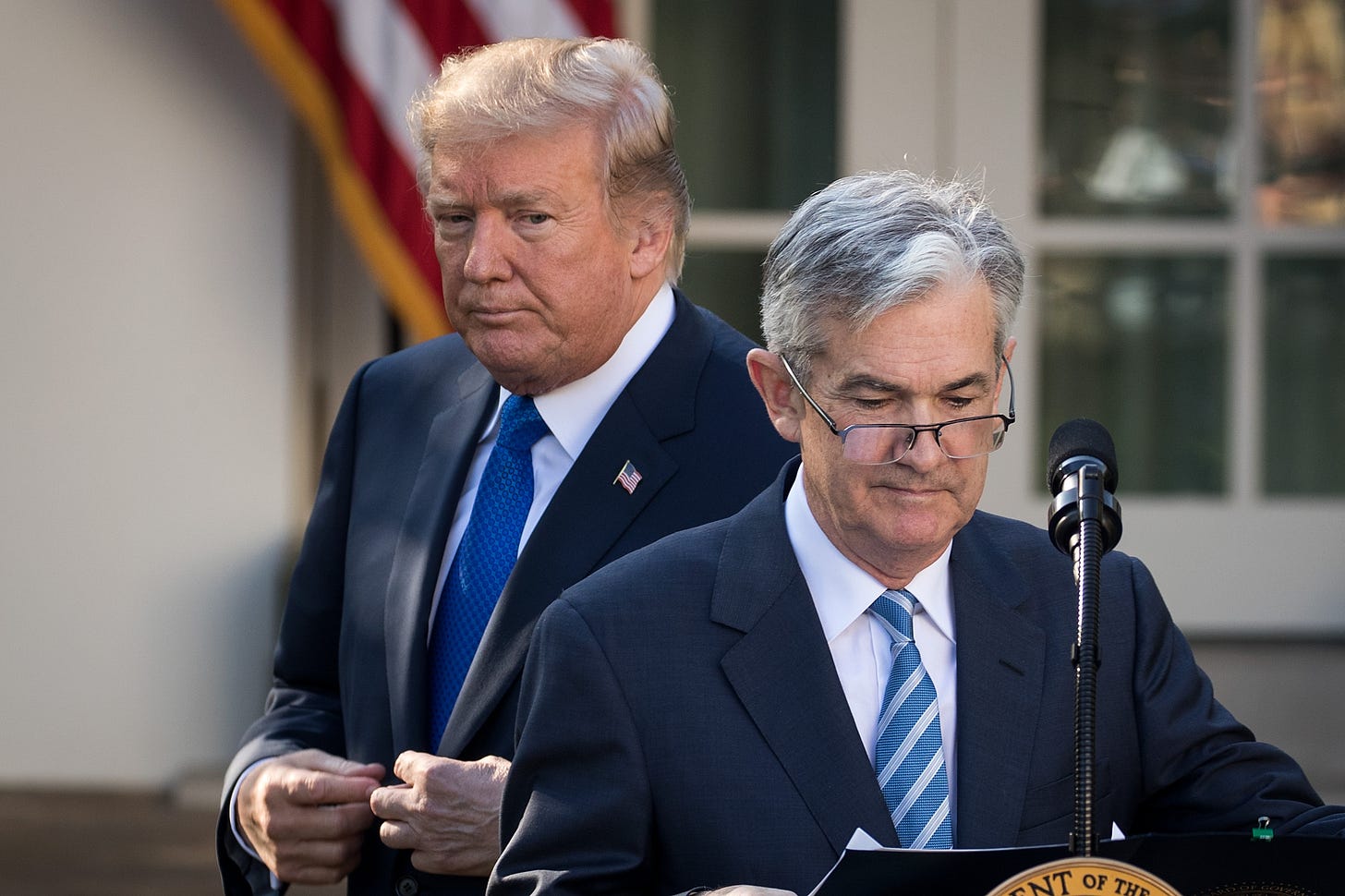
Trump Says He Won’t Fire the Fed Chair. But Could He?
May 7, 2025
How Trump’s Tariffs Could Affect Nike and Its Workers
May 7, 2025Meta is in trouble in Nigeria.
Local authorities have fined Meta $290 million for regulatory breaches, prompting the social media giant to threaten pulling Facebook and Instagram from the country.
The Federal Competition and Consumer Protection Commission (FCCPC) said on May 3 that quitting Nigeria won’t absolve Meta of its liability.
The showdown is the latest development in a year-long regulatory battle between the social media behemoth and Africa’s most populous nation.
Why is Meta being fined?
The dispute began in 2021 when Nigeria’s FCCPC started a probe into WhatsApp’s new privacy policy.
The commission said Meta committed multiple and repeated infringements of the country’s Nigerian rules, including “denying Nigerians the right to control their data, transferring and sharing Nigerian user data without authorization, discriminating against Nigerian users compared to users in other jurisdictions, and abusing their dominant market position by forcing unfair privacy policies.”
After remediation efforts failed, the FCCPC issued its final order in July 2024, imposing a $220 million fine along with penalties from other agencies that took the total amount to $290 million. Meta appealed the decision, but the plea was overturned in April, prompting the company’s threat to withdraw its services from Nigeria.
How significant is this fine for Meta?
This isn’t Meta’s first regulatory breach. The company has faced similar sanctions worldwide, including a much larger $1.3 billion fine in Europe. It has also been penalized in India, South Korea, France, and Australia. It even faces a $1.5 billion fine in Texas.
While the amount of Nigerian fine may not be significant for the company that clocked a revenue of $164 billion in 2024, Meta isn’t making enough money in the country to justify paying such an amount, according to Cheta Nwaneze, partner at SMB Intelligence, an Africa-focused consulting firm.
“I don’t think they will follow up on the threat, but the possibility exists if Nigeria chooses to be obstinate,” Nwaneze told Rest of World.
Nigeria represents only a minuscule percentage of its global revenue, sales Meta can afford to forgo if the stress of remaining in the country outweighs the benefits, he said.
What’s at stake for Nigerian users?
Nigerian users, on average, aren’t concerned about data privacy.
The potential withdrawal of Meta’s platforms may have significant implications for Nigeria’s digital ecosystem.
According to social media performance tracker Napoleoncat, Meta has a massive presence in the country, with Facebook alone reaching about 51.2 million users as of May 2024, more than a fifth of the population. Instagram had 12.6 million Nigerian users as of November 2023, while WhatsApp had about 51 million users, making Nigeria the 10th largest market globally for the messaging app.
Many experts believe Nigerian users, who depend heavily on these platforms, might pressure regulators to pardon Meta. If Meta follows through on its threat, Nwaneze predicts more Nigerians will take to VPNs for access, similar to what happened during the country’s Twitter ban in 2021, when even officials of the government who banned X were using VPNs to access the platform.
“Nigerian users, on average, aren’t concerned about data privacy… they’re more concerned about stuff such as conversions,” Nwaneze said.
What led to the clash?
The conflict centers on data privacy concerns, with Nigeria insisting Meta must follow local laws regardless of its global status.
The regulator characterized Meta’s withdrawal threat as “a calculated move aimed at inducing negative public reaction” to pressure regulators into reconsidering their decision. With millions of Nigerian users across Facebook, Instagram, and WhatsApp at stake, the standoff raises important questions about corporate accountability and digital sovereignty in emerging markets.
Nigeria is determined to assert regulatory authority over powerful global tech companies operating within its borders. The verdict marks an important precedent for how African nations manage relationships with multinational tech companies.
The FCCPC’s investigation highlights both legal breaches by Meta and the government’s commitment to ensuring that multinationals adhere to domestic regulations, Nwaneze said. Meta’s unsuccessful appeal further validates the FCCPC’s procedures and its interpretation of data rights under Nigerian law.
What are Meta’s options?
Seye Ayinla, a partner at Nigerian law firm Duale, Ovia & Alex-Adedipe, said it wouldn’t be prudent for Meta to exit Nigeria, which is one of its largest markets in Africa.
Meta should present its case to the Court of Appeal and apply for a stay of execution pending the submission of the appeal, Ayinla told Rest of World. This would allow Meta to prevent the regulator from enforcing its order before the appeal verdict and give Meta space to explore other avenues, like arriving at a settlement.
While Meta’s social platform users remain divided, the key issue is whether the commission can maintain its position through to the end. The outcome will set an important precedent for how global tech companies interact with regulatory authorities across Africa and other emerging markets.
#Millions #Nigerian #users #balance #Meta #threatens #exit
Thanks to the Team @ Rest of World – Source link & Great Job Damilare Dosunmu





